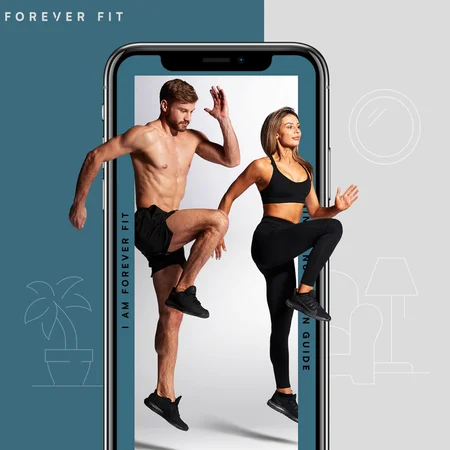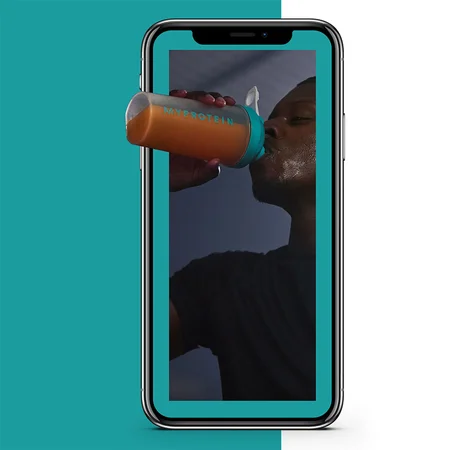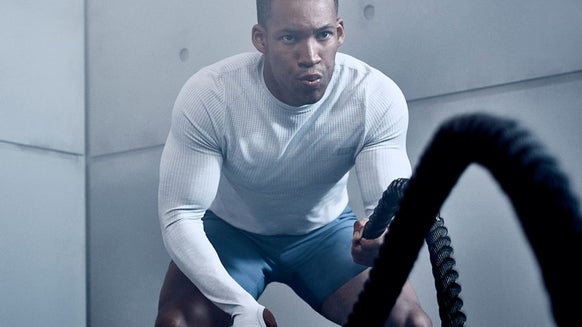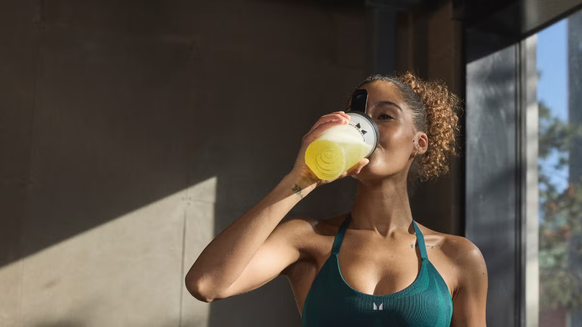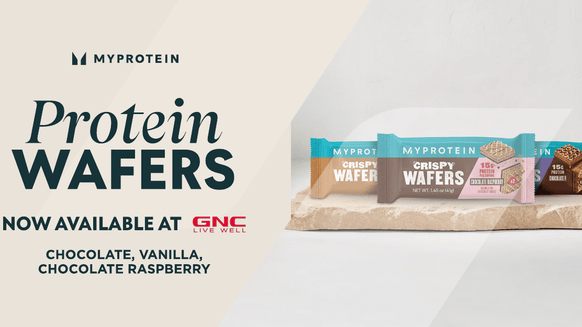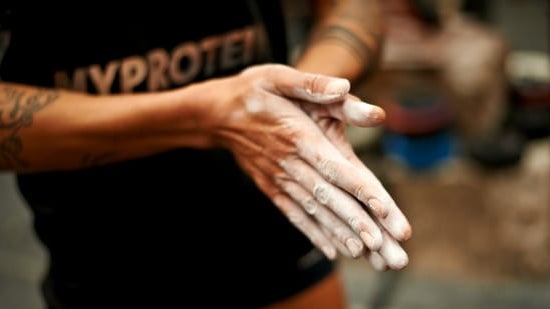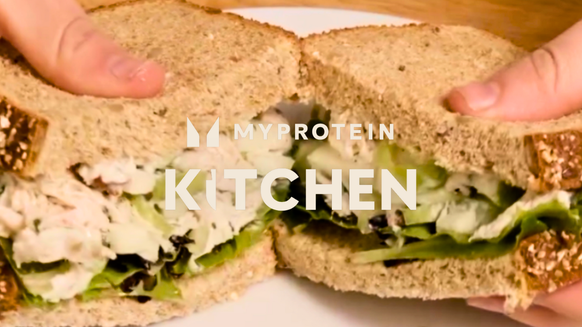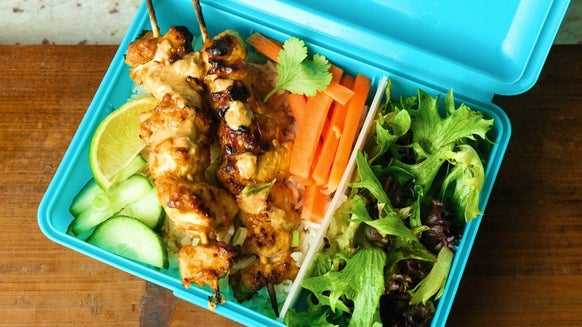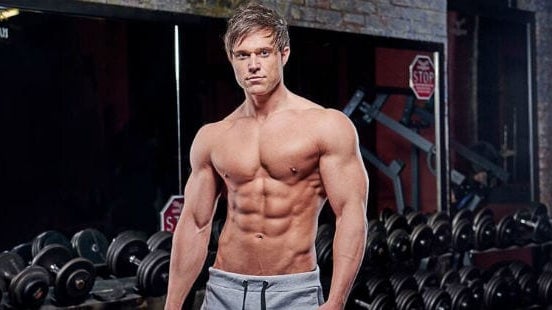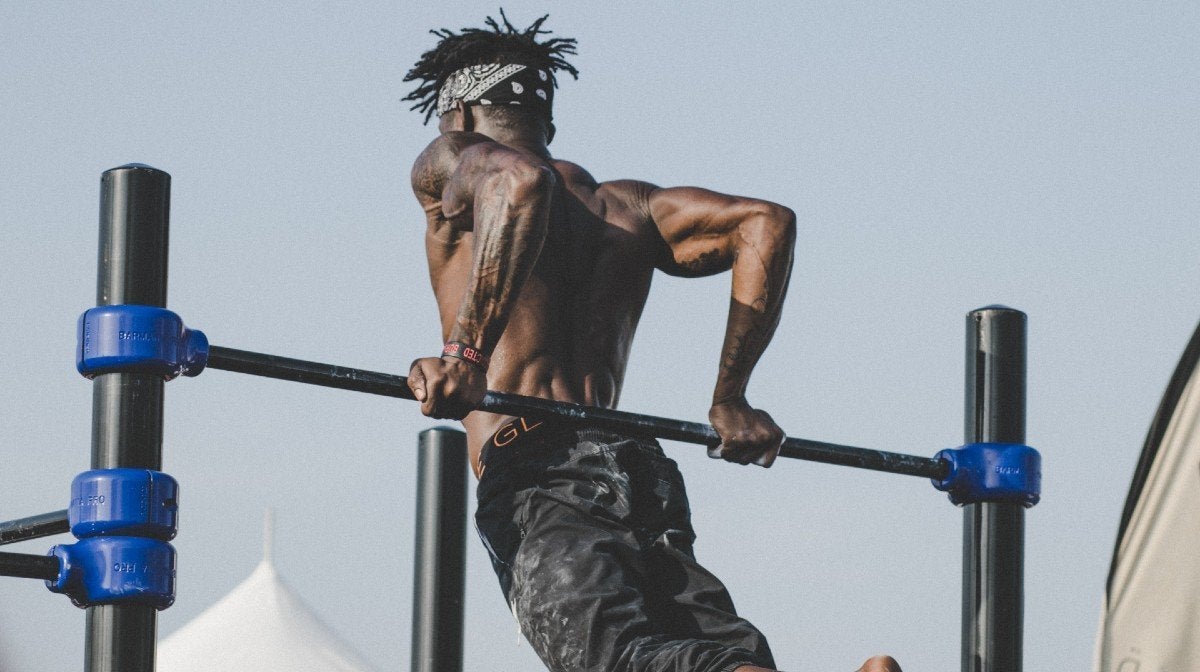
When you’re trying to make improvements to your health, some changes take longer than others to show results. Quickly building muscle is a common goal - and it can be done. If you combine the right tools and training methods, we can help you optimize the impact on your workouts and see gains as quickly as possible. Even when you don't have access to a gym.
Don’t know where to start? Check out

How fast can you build muscle?
10 Steps To Build Muscle Fast:
1. Lift the Right Weight
We know that lifting weight is the key to building muscle, but you don’t have to hit a PB every session. Find weights that challenge you to complete the final few reps of each set but aren’t impossible to the point where you might injure yourself or give up before completing your reps.

2. Work Hard Enough
You might be asking, “how do you know you’re working hard enough?”.

3. Eat Enough Calories
If you’re trying to cut fat while building muscle, it can be tricky to get enough calories to gain mass without gaining fat. Start with a surplus of between 250-500 calories per day, based on your goals and how hard you work out.

4. Get Enough Protein
You might have guessed it already, but the quality of the calories that you’re consuming are just as important as getting enough to eat. Protein is the best fuel for muscles – it provides the amino acids that our body needs to build and repair muscle damage after a workout.
Whether you get your protein from chickpeas and chicken or include supplements and shakes (or all four), aim for at least 1.2 – 2.2 grams of protein per kilogram of body weight.

5. Drink enough water

6. Get Enough Sleep
Work hard, then recover, recover, recover.
Sleep is an often-overlooked component of recovery. Many of the hormones our body uses for recovery and muscle building (like human growth hormone) are triggered while we sleep. A deep sleep allows our muscles to relax and achieve the maximum recovery benefits.
Those who are sleep deprived have a much more difficult time building and keeping on muscle. Aim for between 7 and 9 hours per night.

7. Vary Your Training
If you aren’t experiencing that sore feeling after a workout, even if you are lifting heavy and challenging yourself, your body is likely adapting to the same challenges over and over again.
If you typically use dumbbells for training, hit the bench and load some weight onto a barbell. If your gym has machines, give them a try a few times per week. Keeping your body guessing and challenged in new ways will achieve greater muscle building results.

8. Incorporate HIIT
HIIT, or high intensity interval training, is a great way to burn fat and boost your metabolism. Unlike long cardio sessions, these workouts often contribute to muscle building and aren’t long enough to rely on muscle tissue as a fuel source.
HIIT is a great cardio choice for when you only have a short time to work out, with quick bursts of intensity and recovery periods.
Try running, biking, or swimming at your max effort, for 1:1 work to rest intervals,

9. Optimize Your Supplement Stack
So, you know protein shakes are a key to muscle building, but what else should you be consuming? There are several options based on the rest of your diet – supplements are meant to make up for whatever your typical food habits lack.
Creatine is one supplement that is proven to have an anabolic effect, and it is simple to add to your post work-out protein shake.
If you’re taking a pre-workout, make sure it contains BCAAs to help your muscles be primed for growth.

10. Always Be Setting Higher Goals
When you really want to build muscle quickly, you have to be challenging your body and pushing your limits (safely, of course).
If you’ve always used the same weights or performed the same number of sets or reps, change it up. Even if you’re only upping your weight by a few kilos, it can make a great difference over time.
On the flip side, you can try higher reps with lighter weights and see if your body responds differently.

How To Build Muscle in Lockdown
When we’re limited to working out at home during lock down, you have to get a bit more creative than when you have an entire gym at your disposal. But we can help you with that. Here are some ways to get a great burn even at home.

1. Body weight training.
It is possible to build muscle using only your own body weight. With little or no equipment, you can utilize your own body weight to improve your strength and build muscle. Here are some moves to try.
Focus on slowing down your movements, and increasing reps.
2. Resistance bands.
Slim, lightweight resistance bands hardly take up any space and can be used in a wide variety of movements to add resistance. They’re great to use at home or when you’re traveling and don’t have access to a gym. They’ll definitely have you feeling the burn.
3. Adjustable dumbbells.
If you have enough space to store one set of dumbbells, choose a pair that you can adjust to be heavier or lighter as needed.
These save a massive amount of space, and allow you to change up your weights to match whatever workout you’re doing.
4. Get creative!
What heavy items do you have around your home? Try working out with a backpack (on your chest or back) filled with whatever heavy stuff you can find. Lift some full water jugs, or grab a study chair or bench to switch up the incline during your lifts.
Take Home Message
Interested in getting some more expert advice?
READ THESE NEXT:
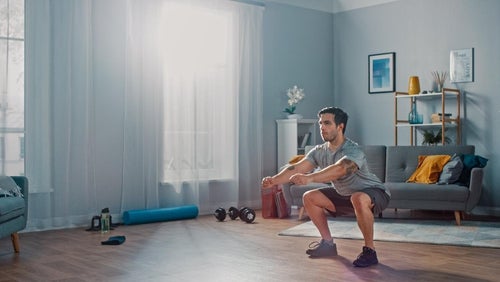
4 Bodyweight Workouts to Build Muscle | 15 Essential Exercises at Home
No gym equipment needed for this bodyweight workouts - give them your best....
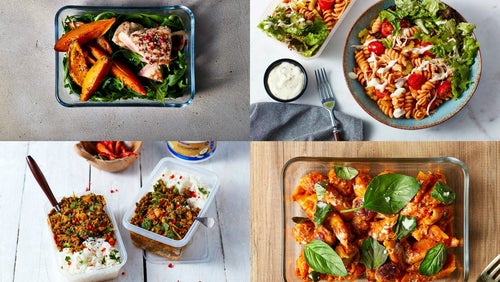
23 Meal Prep Recipes For Muscle Building & Fat Loss
You'll never have to wonder what to make for lunch again....
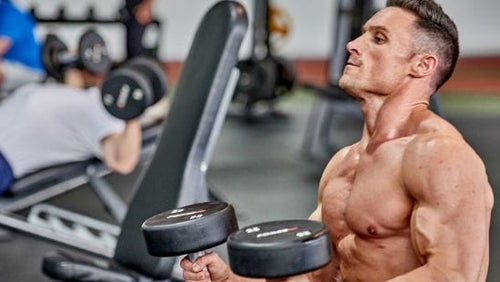
14 Chest Exercises For Your Home Workout
If you thought you needed the gym to pump up your pecs, think again....

Claire is a Registered Dietitian through the Academy of Nutrition and Dietetics and a board-certified Health and Wellness Coach through the International Consortium for Health and Wellness Coaching. She has a Bachelor of Science in Biology and a Master’s degree in Clinical Dietetics and Nutrition from the University of Pittsburgh.
Talking and writing about food and fitness is at the heart of Claire’s ethos as she loves to use her experience to help others meet their health and wellness goals.
Claire is also a certified indoor cycling instructor and loves the mental and physical boost she gets from regular runs and yoga classes. When she’s not keeping fit herself, she’s cheering on her hometown’s sports teams in Pittsburgh, or cooking for her family in the kitchen.
Find out more about Claire’s experience here.
